Nothing spoils a beautiful day in nature like incessant insects, mosquitos that won't quit, and hitchhiking ticks. In certain environments swarms of buzzing, biting bugs can be ridiculously distracting and sometimes even dangerous. Thankfully, there are some tried and true products and tips on how to keep bugs away when camping.
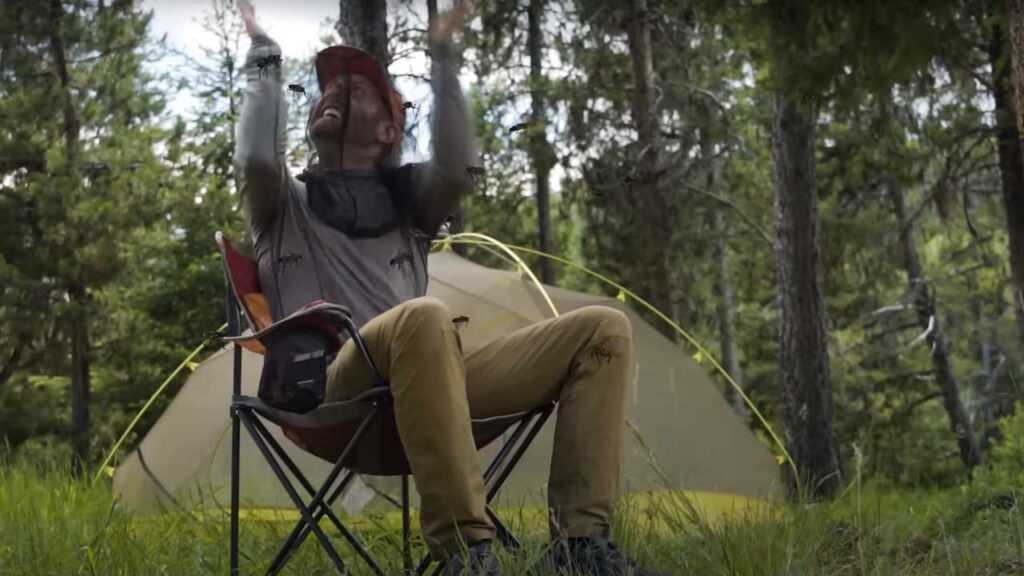
What is the best bug defence when camping?
Your first and best line of defence against bugs in the backcountry is simply covering up from head to toe. Depending on the severity of the region and season, you might want to deploy a bug net. You also should have on long sleeves and pants (possibly treated with permethrin for even more shielding).
Add gloves, and socks that are long enough to protect that ankle area that sometimes gets exposed. When you're selecting your outfit, avoid tight fitting layers. Yoga pants, for example, can be easily pierced by insidious, needle-nosed mosquitos.
Chemical Repellents are Key How to Keep Bugs Away When Camping
Next up, deploy some proven chemical repellents. DEET is a polarizing word, but one thing is for sure, it is the gold standard bug dope – especially mosquitos, but it also protects against ticks, flies, midges, and more.
Since nefarious insects have no qualms about biting the face, it may be worth applying DEET there as well. Just make sure not to spray it on willy-nilly. Rather, squirt a small amount into your hands, and then rub it on your cheeks, neck, nose, and forehead, while being careful to avoid your eyes, nostrils, and mouth.
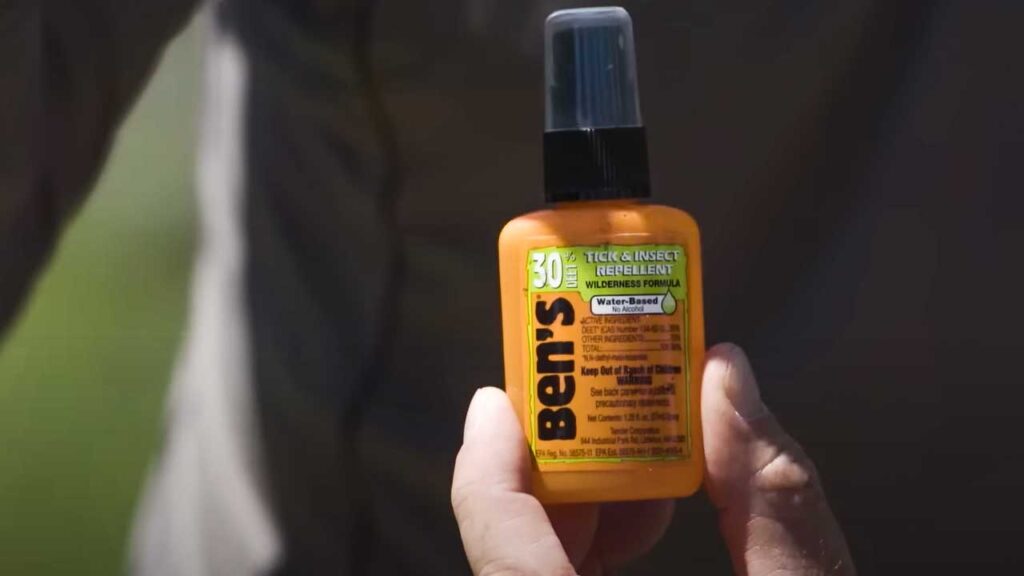
Is 30% DEET effective?
Yes! 30% is actually the maximum effectiveness. A higher percentage doesn't increase the potency, but rather the duration of protection. So 30% and, say 100%, will keep the bugs at bay in exactly the same way, just not all day – you'll have to reapply more often with the lower concentration blend.
What are the disadvantages of DEET?
Even though DEET is one of the best defenders against bugs, it feels kind of gross on your skin (like covering yourself in olive oil), and it can corrode your fancy backpacking/camping gear and clothes over time.
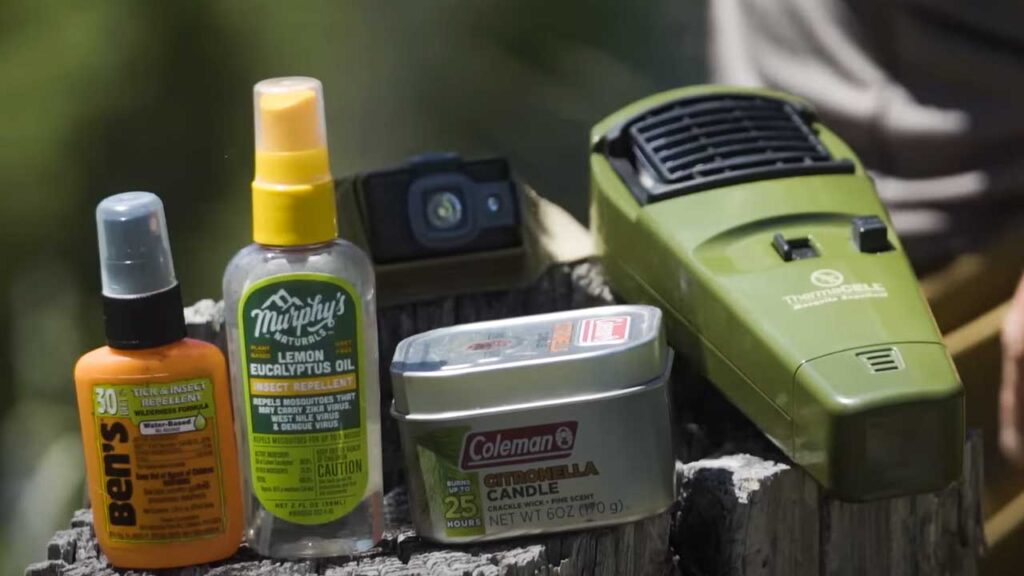
What repels insects naturally?
In areas where insects are floating about, but not swarming uncontrollably, I've found lemon eucalyptus oil to be an adequate, and pleasant-smelling measure. The nearly odorless and colorless picaridin is another one I've had success with. And finally, permethrin is a treatment that is meant for your gear and clothing (maybe even your tent), rather than your skin.
Bug Repellant Clothing?
Some clothing comes pre-treated with permethrin, such as the undergarment brand ExOfficio, so definitely consider that approach before trekking deep into bug country. Even though all three of these are gentler alternatives to DEET, I still recommend washing your soiled camp clothes separately from the rest of your laundry hamper that awaits you back home. Otherwise, these oils and compounds tend to cross pollinate.
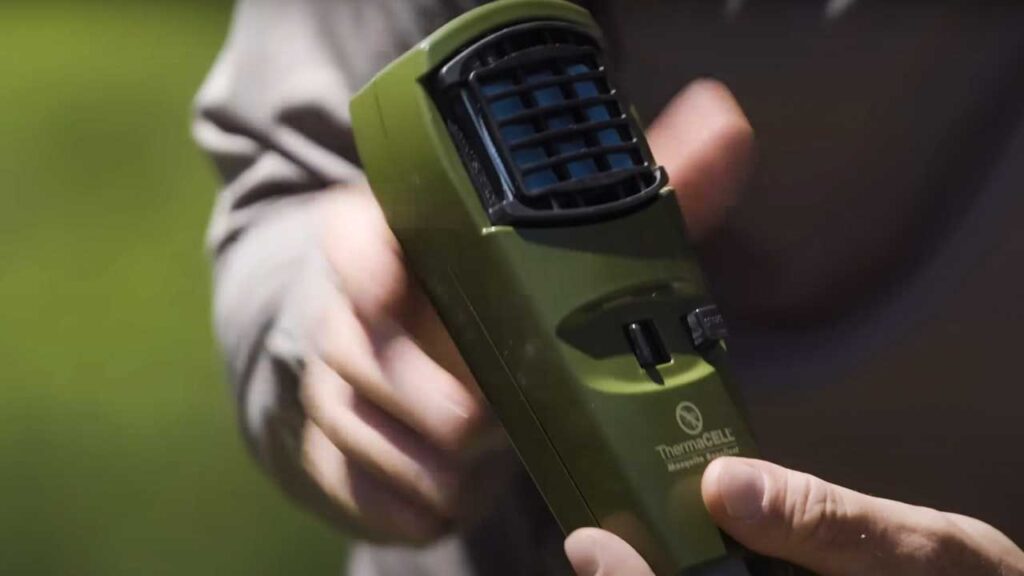
In addition to treatments, there are also a couple instruments worth deploying on your adventures. I wouldn't necessarily suggest hiking with citronella candles, but if you're just hanging around the backyard or doing some frontcountry camping, then put a few of those guys in the immediate vicinity, as they usually do a reasonable job.
Another interesting option is the Thermacell – popular amongst hunters and reportedly helpful for when you aren't moving around very much. A small butane canister vaporizes an allethrin pad, which is a synthetic form of a natural repellent found in chrysanthemum plants.
I haven't used it myself, but my trustee cameraman had success with it in the bug-heavy prairies of Saskatchewan, Canada. The caveat here is that it's not supposed to be used around food, pets, or small children. It passes the general sniff test for the E.P.A., but given the disqualifiers, I have a feeling the Thermacell might be best deployed in moderation.
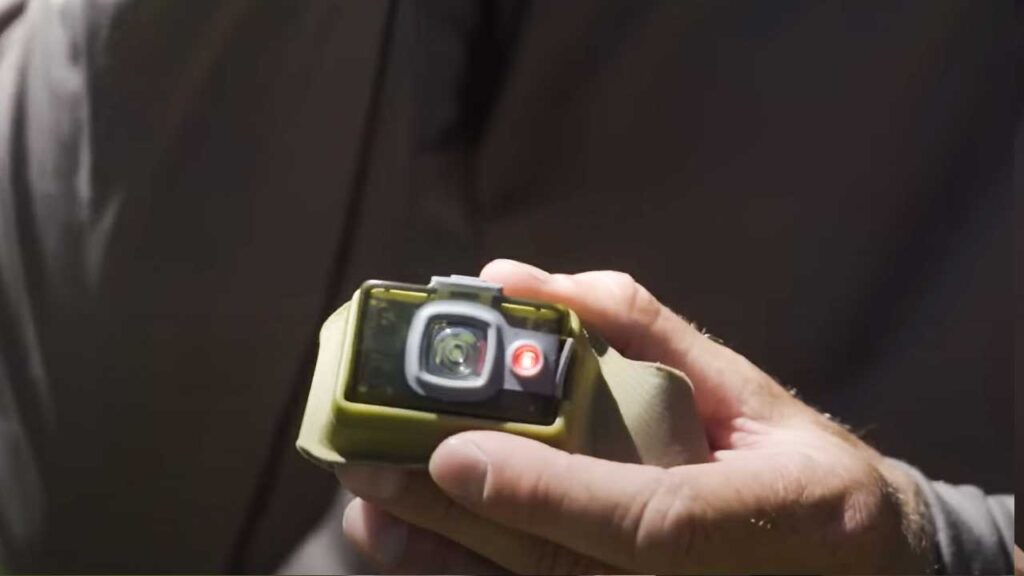
What kind of headlight doesn't attract bugs?
The red light setting is the way to go to avoid beckoning bugs. We've all seen insects swarm the lights on a backyard porch or country road. They love it…to death. But the red light spectrum does not hit their radar. And the added bonus is that you and your peers will not have your night vision disrupted. You can even stargaze with the red light on.
How do you make a tent mosquito proof?
One option is to spray your tent with permethrin – a natural(ish) repellant that won't corrode the fabric. Don't do this with DEET, since we've already talked about how that can dissolve your gear pretty quickly. The other thing that's within your locust, excuse me, I mean locus of control, is to keep your tent door closed at all times. Sometimes we get a little too casual around camp.
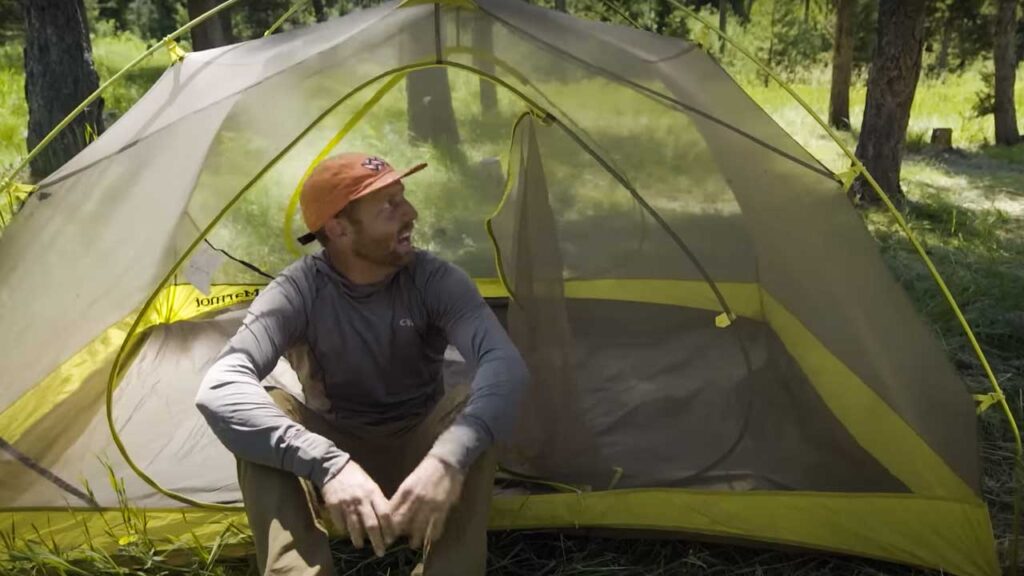
We dilly-dally getting in and out of the shelter, we might leave it unzipped out of courtesy for our tentmate in tow, or think that it's fine to leave the door flapping about while we retrieve something nearby. But mosquitos and other bugs get curious, and once they're in, they're not going anywhere.
Even one rogue mossie can wreak havoc throughout the night. Speaking of which, be especially mindful in the dark, and don't linger with that attractive white light headlamp setting as you fiddle with the zipper.
If you do find yourself trapped with some hungry mosquitos, I've come up with a little hack/game to get them out. Pack a bit of duct tape, and use it to snatch up those tiny bloodsuckers. It's much cleaner than smacking them with your bare hands, and it's honestly quite fun to see how many you can get.
So don't let the bugs repel you away from the great outdoors. You, brave adventurer, can do the repelling! Just suit up, spray down, and follow a few best-practices around camp, and you'll be able to go anywhere without trepidation. It's time for me to buzz off, but if you're itching for more hiking and camping tips, head on over to BackpackingTV.

Gear used in this review include:
Bug Stuff:
- Murphy's Naturals: https://www.murphysnaturals.com/
- Ben's Deet Insect Repellent: https://bit.ly/3QXpdsu
- Thermacell: https://bit.ly/3dsNV6k
- Bug Net: https://bit.ly/3dmvOit











